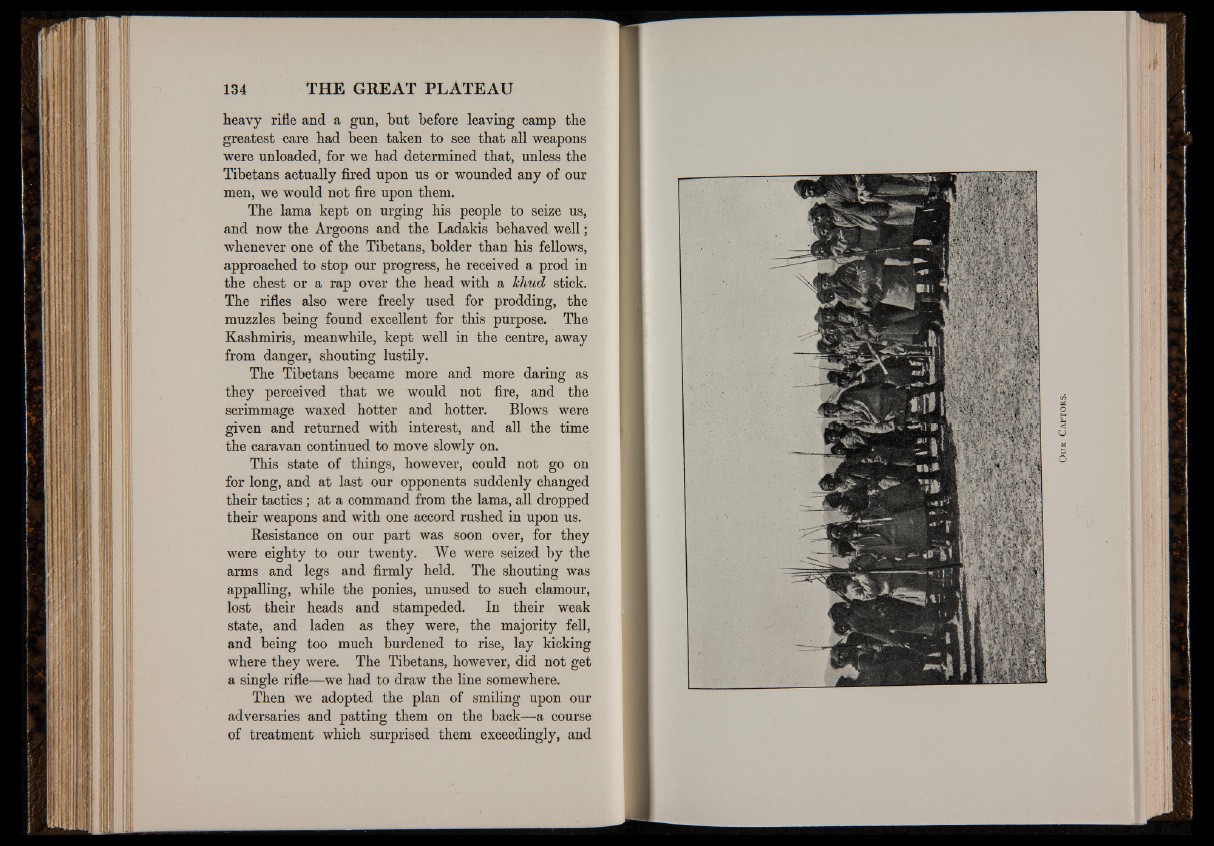
heavy rifle and a gun, but before leaving camp the
greatest care had been taken to see that all weapons
were unloaded, for we had determined that, unless the
Tibetans actually fired upon us or wounded any of our
men, we would not fire upon them.
The lama kept on urging his people to seize us,
and now the Argoons and the Ladakis behaved well;
whenever one of the Tibetans, bolder than his fellows,
approached to stop our progress, he received a prod in
the chest or a rap over the head with a Jchud stick.
The rifles also were freely used for prodding, the
muzzles being found excellent for this purpose. The
Kashmiris, meanwhile, kept well in the centre, away
from danger, shouting lustily.
The Tibetans became more and more daring as
they perceived that we would not fire, and the
scrimmage waxed hotter and hotter. Blows were
given and returned with interest, and all the time
the caravan continued to move slowly on.
This state of things, however, could not go on
for long, and at last our opponents suddenly changed
their tactics; at a command from the lama, all dropped
their weapons and with one accord rushed in upon us.
Resistance on our part was soon over, for they
were eighty to our twenty. We were seized by the
arms and legs and firmly held. The shouting was
appalling, while the ponies, unused to such clamour,
lost their heads and stampeded. In their weak
state, and laden as they were, the majority fell,
and being too much burdened to rise, lay kicking
where they were. The Tibetans, however, did not get
a single rifle—we had to draw the line somewhere.
Then we adopted the plan of smiling upon our
adversaries and patting them on the back—a course
of treatment which surprised them exceedingly, and